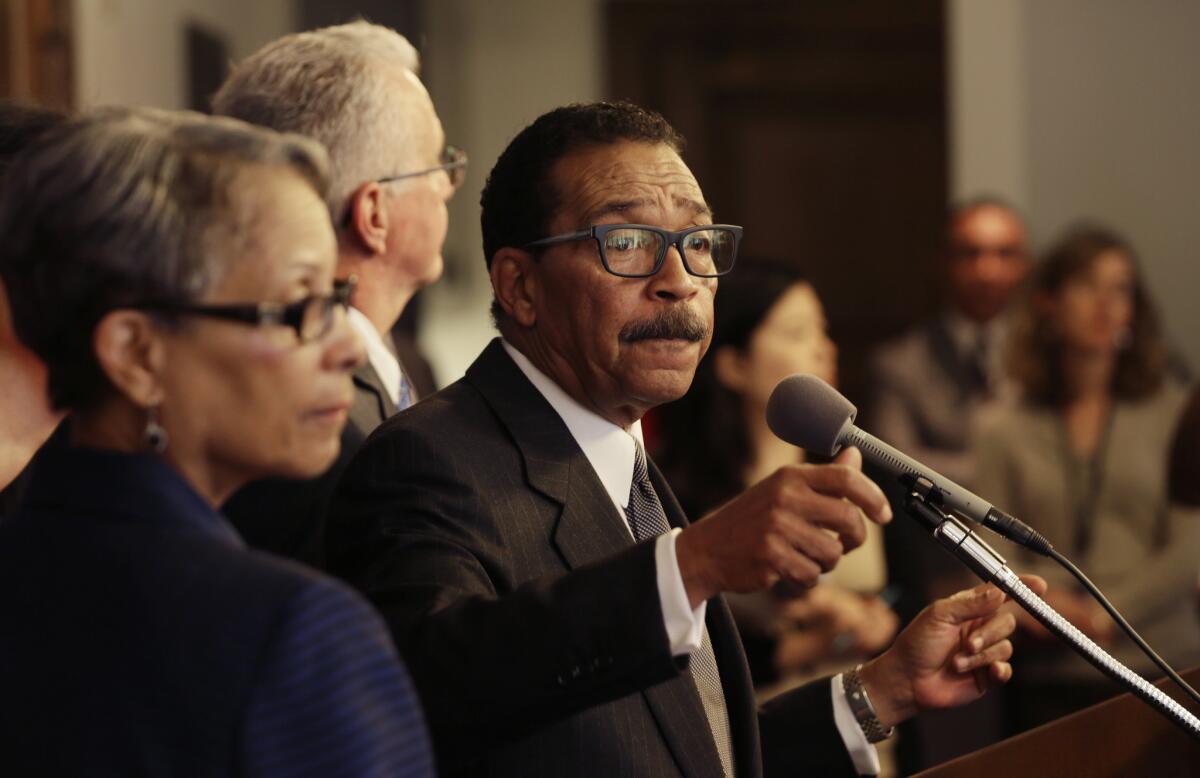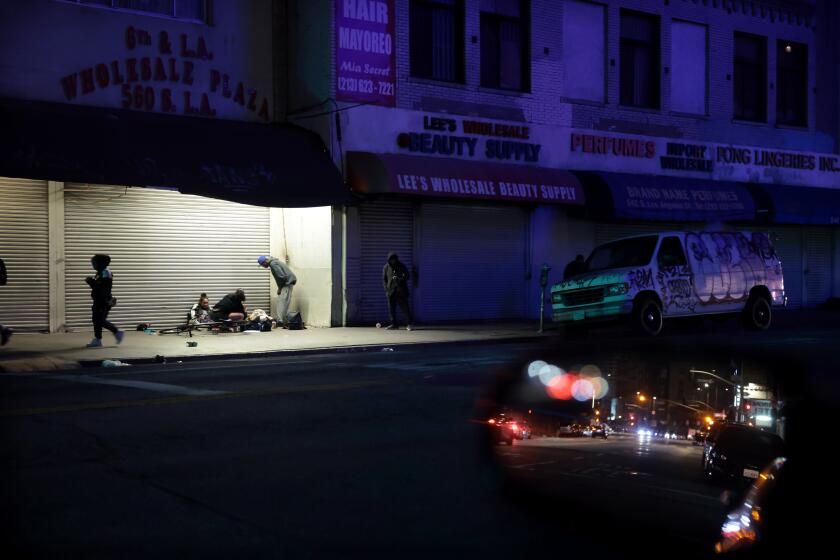Opinion: Cities that prevent deportations should lose their federal funding

Los Angeles City Council President Herb Wesson at a news conference in May. He has called on his colleagues to create a new position of immigration advocate at City Hall.
To the editor: This article is quite disturbing. Laying out a battle plan? So, is the city of Los Angeles going to war with the federal government? And why? Because the leaders of L.A. don’t agree with longstanding federal government laws on immigration? (“L.A. leaders just vowed to fight deportations under Trump. Here’s what they’ve proposed,” Nov. 18)
Didn’t we at one time have a country that punished individual citizens and leaders who didn’t comply with federal law? The majority of people in the U.S. do not agree with local leaders who promote sanctuary city policies. Do the leaders of L.A. think they are exempt?
For the last eight years, President Obama has used federal funding of local governments as a tool to help implement the policies he wanted. Now that the shoe is on the other foot, turnabout is fair play. I guess you reap what you sow.
Steve Selland, San Diego
..
To the editor: I wake up in terror thinking about “dreamers,” young people who were brought to this country as undocumented immigrants by adults.
The incoming Trump administration wants to deport them to violent countries where they often cannot speak the language. It has their names and addresses. If Los Angeles is not truly a so-called sanctuary city, how can we protect them? Can we adopt them?
I keep thinking of the pre-World War II airlifts of Jewish children into Great Britain. Where can we take these young people when so many refugees already need help in this world? Can we find an embassy willing, and large enough, that we can sneak them into? We could pay for their subsistence with an online fund-raising campaign.
When thousands of us stand in front of these children, what will President-elect Donald Trump’s deportation force do?
Cheryl Younger, Los Angeles
..
To the editor: While it is true that most aliens residing illegally in the United States are not in violation of the federal criminal code, Title 8, Section 1325 of the U.S. Code does make illegal entry a misdemeanor. Typically, the crime is not charged except for some repeat offenders, but it is still a crime. (“The first casualty in the war on undocumented immigrants — the truth,” editorial, Nov. 16)
Also, any alien who returns to the U.S. after formal deportation (removal) is subject to felony charges of reentry after deportation. (Section 1326). Of course, none are “criminals” unless they are convicted.
Overall, your article is on point in that L.A. is not a “sanctuary city” that refuses to assist the authorities when requested in a specific instance.
Patrick Comey, Spring Valley, Calif.
The writer is a retired senior special agent for U.S. Immigration and Customs Enforcement.
..
To the editor: A close friend of mine is a dreamer.
From the age of 14, he has worked at low-wage jobs to help support his family. He worked his way through college and is about to graduate from a state university with degrees in physics and engineering.
Until Nov. 8, the future looked really promising for my friend. If Trump rescinds President Obama’s Deferred Action for Childhood Arrivals program, all this promise evaporates, leaving only deep insecurity and the sense of being played a fool.
The very documentation that opened doors for dreamers perversely identifies them as the easiest targets for removal.
Stephanie Llewellyn, Burbank
Follow the Opinion section on Twitter @latimesopinion and Facebook
More to Read
A cure for the common opinion
Get thought-provoking perspectives with our weekly newsletter.
You may occasionally receive promotional content from the Los Angeles Times.






